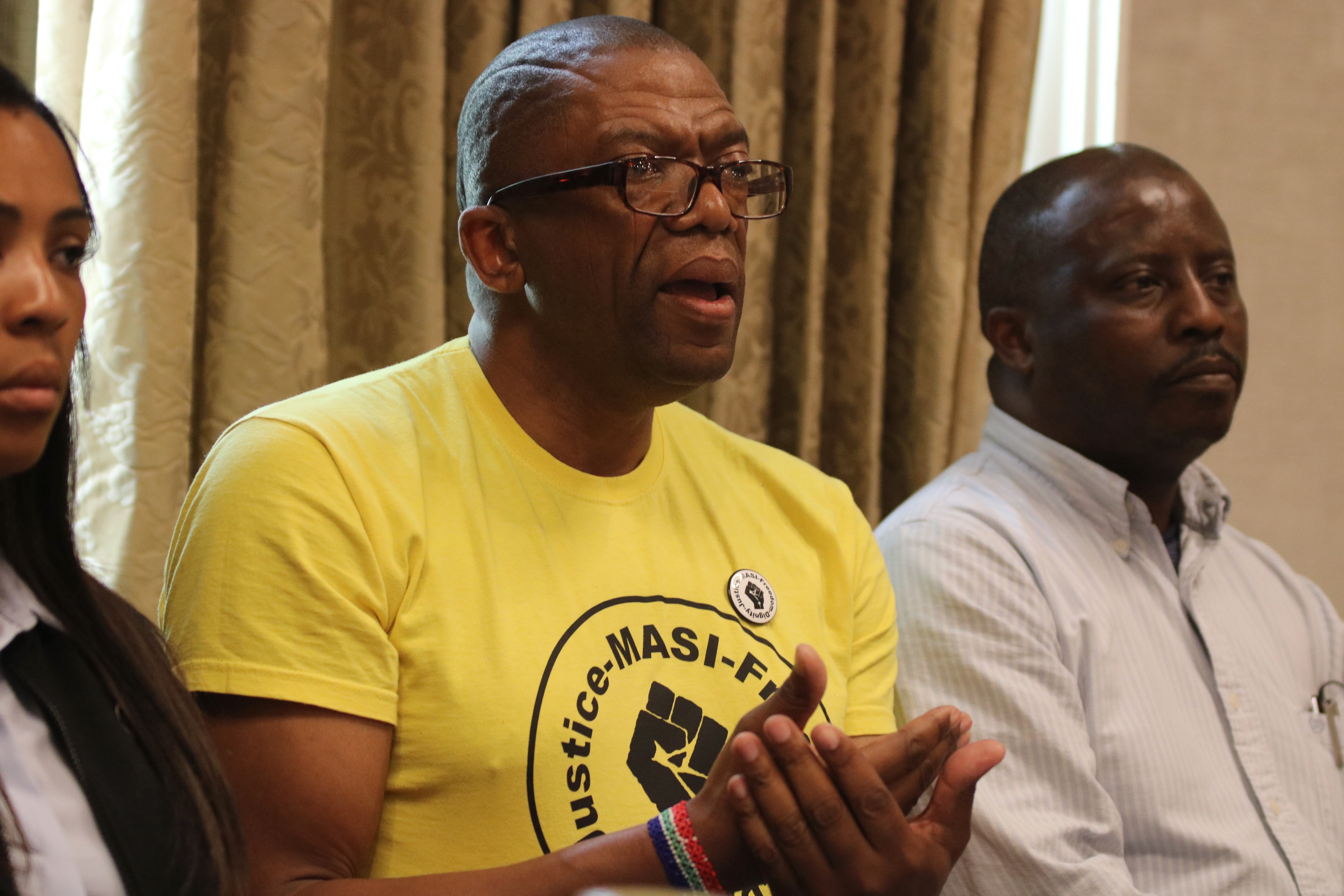The Movement of Asylum Seekers in Ireland (MASI) launched its Right to Work campaign yesterday evening, which calls for asylum seekers to be allowed to work in Ireland without restrictions or discrimination.
Speakers at the launch included Lord Mayor of Dublin Mícheál MacDonncha and Lucky Khambule of MASI. Other speakers in attendance were Seneliso Mkoko, Donnoah Vuma, and Nomaxabiso Kilimani Lwandle.
Speaking at the press conference, the Lord Mayor of Dublin Mícheál MacDonncha called Direct Provision, the system for housing asylum seekers in Ireland, the “Magdalene Laundries of our time”.
“In years to come, we will look back on the treatment of people seeking protection in Ireland and confined in forced dependency in Direct Provision without the meaningful right to work or education in the same way unless the state and its elected representatives break the cycle of abuse now,” said MacDonncha.
The Right to Work campaign launch comes ahead of the government’s expected announcement regarding the details of Ireland’s opt-in to the European Union Directive on Reception Conditions. The directive outlines that access to employment must be granted to an asylum seeker within a maximum of nine months. Last week, the Minister for Justice and Equality Charlie Flanagan urged the Irish government to opt in to the directive, in order to reduce the existing limitations on asylum seekers’ right to work in Ireland.
By launching their Right to Work campaign ahead of the government’s announcement, MASI hopes to encourage the government to opt-in to the directive.
Speaking at the launch, Lucky Khambule of MASI outlined that the Right to Work campaign demands include immediate access to the labour market for asylum seekers, no fees for work permits or residency permits, and a standard living wage. Additionally, they advocate for no minimum salary requirement for jobs an asylum seeker can apply to, and asylum seekers should be entitled to the same labour rights and access to social protection as Irish and EU citizens, according to Khambule.
Other rights for asylum seekers are encompassed in the campaign which impact an asylum seeker’s right to work, such as the right to accommodation, the right to a driver’s licence, and the right to open a bank account.
“We want each and every person in this country to be able to contribute, to be able to pay taxes, to be able to have a private life, a normal life,” explained Khambule.
Currently, there is no Right to Work campaign in Trinity. However, Trinity students have campaigned against Direct Provision and for the rights of asylum seekers in Ireland. This year, a group of Trinity students organised a boycott campaign of Aramark, the company appointed by College as the caterer for the Westland Eats café in the Hamilton building, due to its ties to Direct Provision centres.
Using the slogan “Aramark Off Our Campus”, the group campaigned for College to cut its ties with Aramark. UCD students also decided to boycott on-campus food outlets associated with Aramark.
In 2014, Trinity College Dublin Students’ Union (TCDSU) voted in favour of a mandate to oppose direct provision. TCDSU also supported the Aramark Off Our Campus campaign.
Last year, the Supreme Court ruled that Ireland’s total ban on the right to work for asylum seekers was unconstitutional. Subsequently, the government implemented the Employment Permits Act which restricts the type of jobs asylum seekers may apply to. It also requires asylum seekers to apply to positions with a starting annual salary of €30,000.







